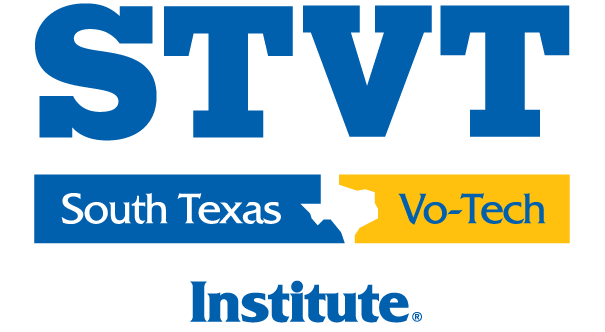Heating, ventilation, air conditioning, and refrigeration (HVACR) systems help maintain comfortable and healthy indoor environments. From residential homes to large commercial buildings, these systems are crucial in ensuring that the air we breathe is clean and that indoor temperatures remain at optimal levels. As such, HVACR technicians are in high demand, providing expert services to install, maintain, and repair these critical systems.
What Does HVAC Stand for?
HVAC stands for heating, ventilation, and air conditioning. These systems are essential for maintaining comfortable indoor environments in both residential and commercial buildings.
Heating systems provide warmth during colder months, ensuring a cozy living or working space, while ventilation systems circulate and filter indoor air to maintain air quality and remove contaminants. Air conditioning systems help to cool indoor spaces during hot weather, making them more comfortable and providing relief from heat.
Collectively, HVAC systems play a pivotal role in regulating temperature, humidity, and air quality, thereby contributing significantly to health, comfort, and productivity in everyday life.
What is HVAC/R?
Most aspiring HVAC technicians have likely stumbled across the term “HVAC/R” and wondered what it means. The “R” in HVAC/R stands for refrigeration. HVAC/R is an extension of traditional HVAC systems that includes refrigeration equipment to meet additional temperature control needs. Refrigeration systems are essential for preserving perishable goods, including food and pharmaceuticals, by maintaining them at appropriate temperatures.
What’s the Difference Between HVAC and HVAC/R?
HVAC/R technicians are trained to tend to the same climate control equipment as their HVAC counterparts, such as heating systems, ventilation systems, and air conditioning units. Both HVAC and HVAC/R technicians are required to have Environmental Protection Agency’s (EPA) Section 608 certification to tend to air conditioning units. This helps ensure future technicians are well-versed in environmental regulations and practices to promote sustainability within the industry.
HVAC/R technicians undergo more intensive refrigeration training, which better equips them to manage and maintain specialized refrigeration units. This includes equipment like ice machines, vending machines, walk-in freezers, and other specialized cooling storage systems. Their expertise in refrigeration is crucial for industries that rely heavily on precise temperature control and preservation.
Does Texas Require HVAC Technicians to Be Licensed?
Yes, Texas has specific requirements HVAC technicians must fulfill before they can work in the state. HVAC technicians in Texas are required to register with the Texas Department of Licensing and Regulation (TDLR). This involves submitting an application and paying the necessary registration fee.
Additionally, HVAC technicians must earn the Environmental Protection Agency’s (EPA) Section 608 certification if they want to service air conditioning units. This federal certification ensures technicians are trained in the safe handling and disposal of refrigerants, which is crucial for both environmental protection and industry standards. Once these requirements are met, HVAC technicians can legally work under a licensed contractor and provide high quality of service to residential and commercial clients in Texas.
How Long Does it Take to Become an HVAC Technician in Texas?
How long it takes to become an HVAC technician in Texas can vary depending on the length and intensity of an aspiring technician’s chosen program. Generally, HVAC and Basic Refrigeration programs can be completed in anywhere from six months to two years. During this time, aspiring HVAC technicians are taught how to tend to the heating and cooling units they’ll service in the field. Those in HVAC and Basic Refrigeration programs will also be trained to service refrigeration systems.
Students in HVAC and HVAC and Basic Refrigeration programs learn about system design, installation, maintenance, repair. They can also cover topics such as electrical theory, environmental regulations, and refrigeration cycle operations. These programs emphasize hands-on learning experiences through laboratory work and simulation labs. This practical approach helps students gain critical skills and hands-on practice to better prepare them for entry-level positions after graduation.
Some HVAC and Basic Refrigeration programs may also help prepare graduates to earn industry-recognized certifications through the National Center for Construction Education and Research (NCCER), EPA, or North America Technical Excellence (NATE).
Are HVAC Technicians In-Demand in Texas?
The HVAC industry shows promising growth prospects, as projected by the Bureau of Labor Statistics (BLS). According to the BLS, employment in the field is expected to grow by 6% from 2022 to 2032. This growth rate is faster than the average for all occupations and highlights the increasing demand for skilled HVAC technicians. The rise can be attributed to a growing emphasis on energy efficiency and sustainability, leading to the installation of more sophisticated climate control systems in both new and existing buildings.
According to the BLS, Texas boasts the third highest employment rate for HVAC technicians across the United States. This high demand offers ample job opportunities and speaks to the role HVAC technicians play in ensuring comfortable and energy-efficient living and working environments.
How to Become an HVAC Technician in Texas
Most HVAC technicians undergo training at postsecondary institutes such as vocational or technical schools. These programs typically offer a combination of classroom instruction and hands-on learning to help students develop both the technical knowledge and applicable skills required for entry-level positions. Students can apply their skills in simulation labs where they can practice using HVAC equipment and systems similar to what they may encounter in the field.
This helps them become familiar with the nuances of different climate control systems and the best practices for installation, maintenance, and repair. By practicing tasks they may encounter in the field, such as diagnosing system issues or properly handling refrigerants, students are better prepared for the challenges of an HVAC technician’s career. This integrated approach helps graduates to become well-equipped to meet industry standards from day one.
How STVT’s HVAC and Basic Refrigeration Program Enhances Student Training
Our HVAC and Basic Refrigeration program takes student training further by integrating preparation for industry-recognized credentials such as the NCCER. STVT collaborates with the National Center for Construction Education and Research (NCCER) to offer students a curriculum that aligns with industry standards and practical requirements. This partnership exposes students to NCCER credentials before graduation, which can help make them more competitive in the job market after graduation.
Furthermore, the program can help students prepare to take their EPA Section 608 exam. Our HVAC and Basic Refrigeration program helps prepare students to graduate with the skills and knowledge to excel in the HVAC field from day one.
Next Steps
Becoming an HVAC technician in Texas involves a combination of classroom instruction and hands-on training, typically through vocational or technical schools. Programs such as STVT’s HVAC and Basic Refrigeration program provide career-relevant education, hands-on training, and preparation for industry-recognized certifications like EPA Section 608.
With a projected growth in employment for HVAC technicians, the demand for skilled professionals is increasing, particularly in Texas, which has one of the highest employment rates for this occupation. STVT’s HVAC and Basic Refrigeration program can help prepare graduates to meet industry standards and transition into the workforce.
If you’re interested in training for a career in HVAC, contact STVT at (866) 480-9766 or submit this form for more information.
Disclaimer: Information within this blog is for general information purposes only. STVT does not assume or guarantee certification/licensures, specific job/career positions, income earning potential or salary expectations based on the programs offered at STVT. Career and program information statements in this blog do not guarantee that programs or other information mentioned are offered at STVT.


